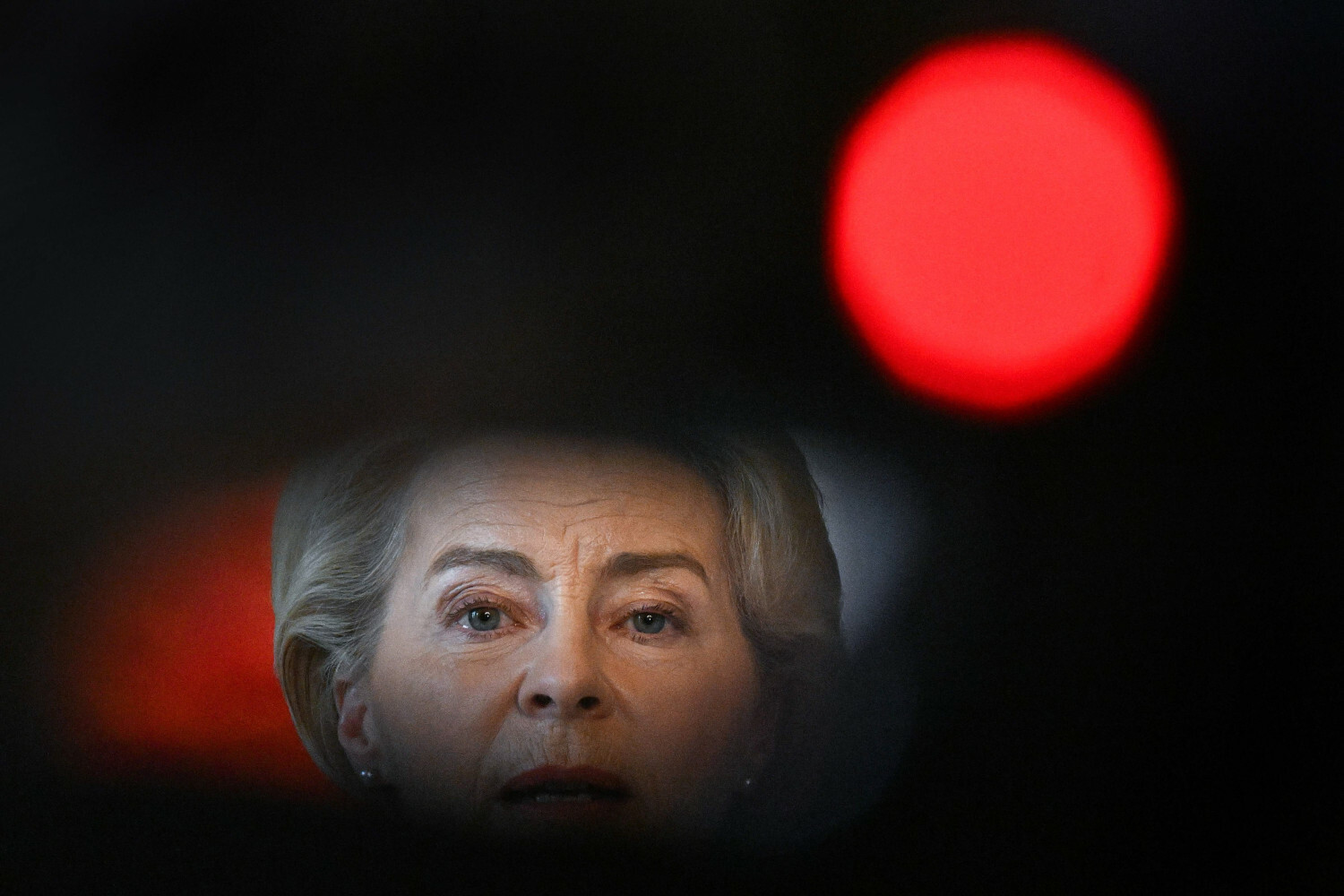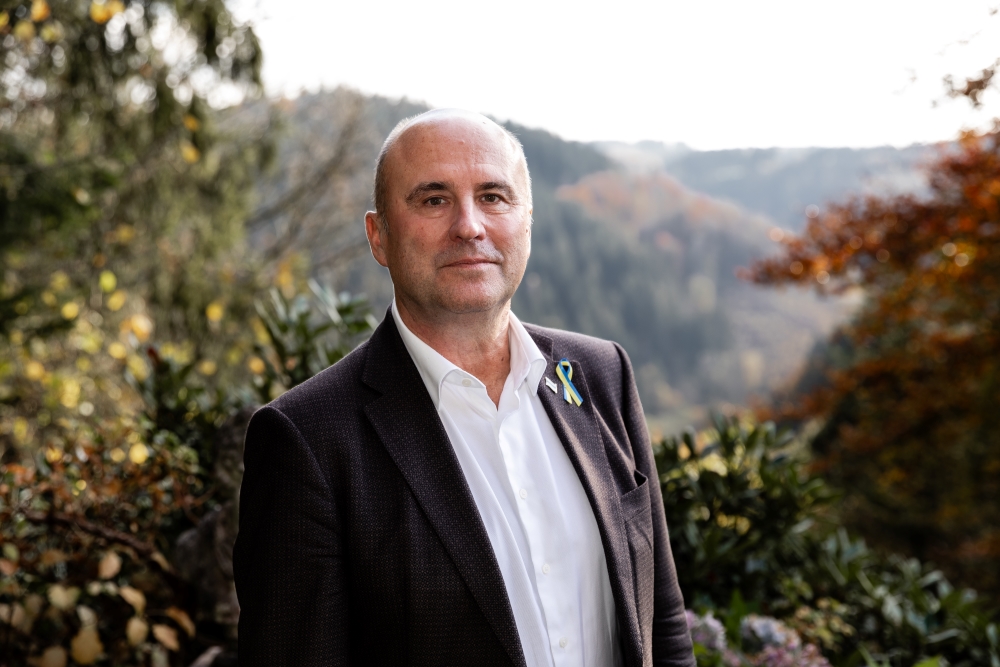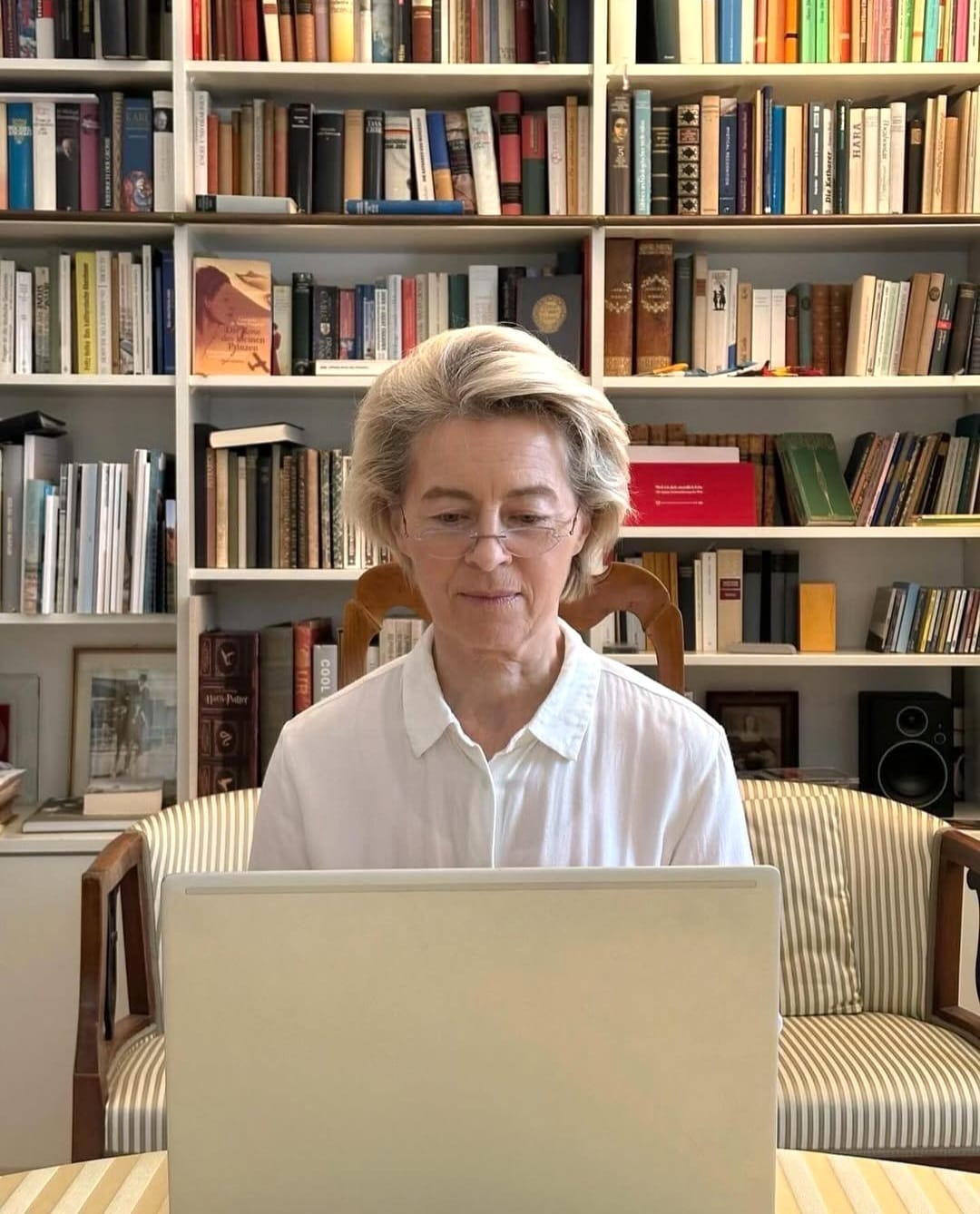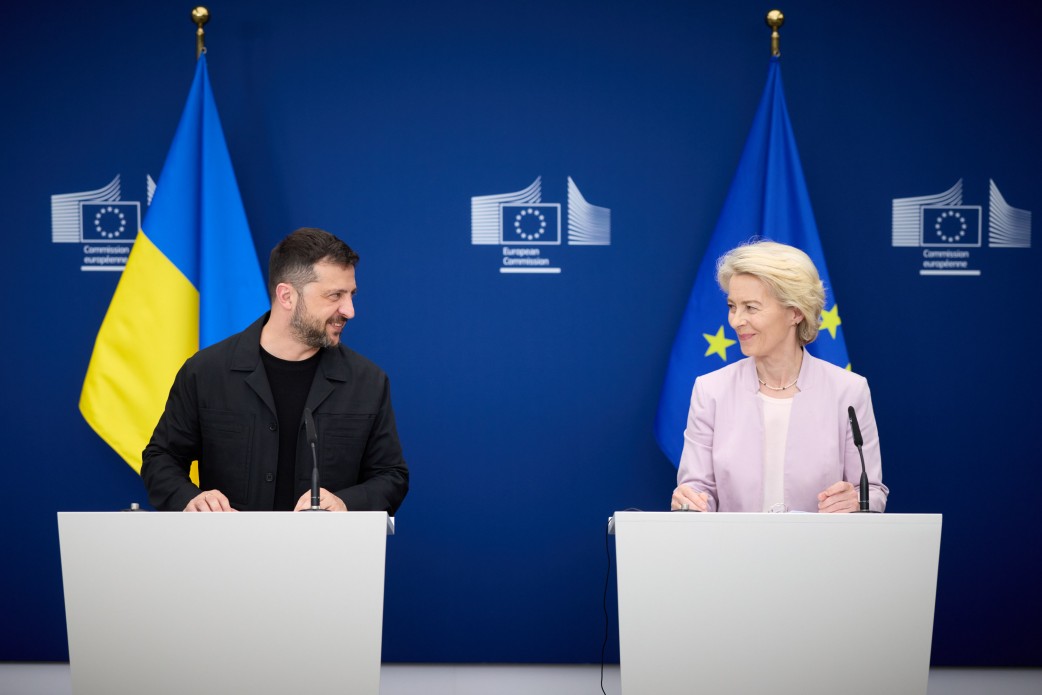Support Sestry
Even a small contribution to real journalism helps strengthen democracy. Join us, and together we will tell the world the inspiring stories of people fighting for freedom!
What is «feminist foreign policy»?
Feminist foreign policy originated in Sweden. Sweden has long been a global leader in gender equality within political institutions, with women comprising 46 per cent of their parliament. In 2014, Sweden decided it was time to broaden its approach. It became the first country to base its international activities on feminist values - specifically, the pursuit of gender equality and the empowerment of women worldwide. Today, the term has taken on a much broader meaning, encompassing the representation of all social groups at risk of discrimination based on gender, age, skin colour, sexual orientation, or disability. Countries that adopt this approach view it as essential to achieving lasting peace and sustainable development on Earth.
What does this mean in practice?
For instance, it means ensuring the rights of both men and women in countries where those rights are not protected. A strong example was seen in Poland when the united right-wing government strengthened abortion laws. In response, the governments of Belgium and the Netherlands decided to support Polish women by providing access to abortion, despite the restrictive ban imposed by Polish authorities. These governments prioritised the interests of citizens over those of the Polish state or its ruling party.
Similarly, support was extended to girls in Afghanistan, despite Donald Trump’s agreement with the Taliban, and to women protesters in Iran.
Since we are part of the Western, civilised world and believe in its values - such as democracy, the rule of law and human rights - we should feel obligated to seek ways to help these persecuted groups, whether they are women, children, or ethnic minorities.
This is the essence of feminist foreign policy.
It has now been 10 years since Sweden announced this approach, followed by Canada and France. More recently, Germany has joined. It is remarkable how this traditionally conservative country is breaking the ice for women's rights.
Indeed, Angela Merkel became the first female chancellor and held the position longer than anyone before her. Ursula von der Leyen was the first female defence minister and went on to become the first woman to lead the European Commission.
At the moment, Europe is not in the best shape when it comes to the strength of progressive parties. In Sweden, despite being the founding country of feminist foreign policy, the new right-wing government has officially abandoned the term. While colleagues from the Swedish embassy assure us that little has changed in practice, it is clear that the name bothered someone. The same is happening in the Netherlands, where the new right-wing government is also moving away from this policy.
The influence of conservative, right-wing parties is visible everywhere. For the first time in decades, we are seeing a decline in women's representation in the European Parliament - 39 per cent in this term compared to 41 per cent in the previous one.
This makes the European Union's gender equality strategy all the more important. For far too long, we associated foreign policy mainly with gentlemen deciding the fate of the world over cigars and whiskey.
When Angela Merkel stepped down, Germans often shared a joke that perfectly illustrates the shift: a little boy asks his mother: «Mom, can a man be chancellor?»
This shows just how powerful examples are in changing perceptions about what women and men «can» do. The child had only ever known a female chancellor, and for him, it seemed natural.

Yes, but the few names we often cite as examples are still not enough. The reality is more like a photo from the G20 Summit: Angela Merkel surrounded by a sea of men in suits. In Poland, we are at a point where there is not a single woman on the list of presidential candidates.
First and foremost, the representation at the top depends on who is in the so-called «base» - how many women are at lower levels from which future candidates can emerge. That is why striving for equality in everyday life is so important. Whether I am meeting with local activists or political scientists from the University of Warsaw, the common theme in these discussions is always the issue of equal distribution of household responsibilities, especially childcare.
Is this still the case?
Unfortunately, yes. This is still something we must fight for. Otherwise, experts predict that real change will not happen for another hundred years or more. That means none of us, nor any girls born today, will live to see it. This is why the «base» matters so much - how we raise our daughters, and even more importantly, how we raise our sons.
Because in the end, as long as we do not impose stereotypical roles, children naturally think in terms of equality.
And when it comes to childcare, aside from breastfeeding, there are no limitations that prevent a man from taking care of a child just as well as a woman. These barriers only exist in our minds, rooted in cultural patterns and social norms
If we do not change this, we will keep hearing degrading arguments like «a woman can not be president in a country near the frontlines» or questioning whether a man with a medical background can be the Minister of Defense during wartime. Yet, we have such a minister in Poland [Władysław Kosiniak-Kamysz, Minister of National Defence, is a medical doctor].
And no one questions his qualifications. No man needs to explain to another that he is both a doctor and the Minister of National Defense in a country near the frontlines.
Rebecca Solnit's quote fits perfectly here: «A novel without women is often considered a book about all humanity, while a book with women at the forefront is categorised as women’s literature».
The system is flawed because it was created by men and for men. It is no surprise that this change is difficult for those who benefit from the current structure, the ones who make the rules.
A woman can fly to space just as a man can. She can be president, prime minister, or anything she chooses to be, and she can make her own decisions. It is about ensuring equal access to education, power, politics and the labour market, while also creating conditions that allow her to become a mother if she chooses.
Feminist foreign policy is not about excluding men, on the contrary - it advocates for equal treatment of everyone. That is why one of the tools for change includes the implementation of quotas and parity, depending on the institution and context. This is a step toward normalising what is still seen today as revolutionary.
In Poland, we certainly have a long way to go. Women make up only 30 per cent of all parliamentarians, one of the lowest rates in Europe. However, regardless of the country - except perhaps Sweden - women pay a higher personal price for a political career than men do. They are constantly asked how they balance their careers and motherhood.
And if they do not have children, like Kamala Harris or Angela Merkel, it becomes another source of criticism. Women who reach the top pay a steep price or have already paid it on the way there. New Zealand Prime Minister Jacinda Ardern stepped down from politics for personal reasons. Ursula von der Leyen started her political career at 40 after raising her children, yet she still faced years of ridicule for supposedly advancing her career at her children's expense. Men are not held to the same scrutiny. Von der Leyen was criticised for almost everything, «pursued» in ways few politicians in Germany have experienced.
A striking example is Magdalena Filiks. It is no coincidence that the intense bullying campaign, which ultimately led to her teenage son's suicide, targeted a divorced woman and single mother. Similarly, Minister Joanna Mucha admitted she almost gave up when she saw how the harassment impacted her children. This kind of targeted bullying happens to women in politics far more often than it does to men.
However, we have no choice but to endure it, to push through until real change happens. Yes, there will be moments when we’ll face malicious comments and condescending attitudes, but change will come, and the system will eventually adapt.
The creation of the FemGlobal Association is another step towards increasing the presence of women in international politics and the public sphere.
It is clear that the visibility of women in public spaces - as experts in panel discussions or commentators on television - is crucial for shifting public consciousness.
According to the most recent available data, female experts make up only 23 per cent of those featured in Polish media. That is why in our association, we have created a database of female experts in international politics, and we work hard to ensure they are represented in the media. For example, when the Taliban took over Afghanistan, I watched perhaps the fifth program on a particular TV channel covering the situation, and it only featured male commentators. I reached out to the editor and suggested some of our female experts, and it worked. I closely monitor this phenomenon of increasing women’s invitations to TV. It happens twice a year: first on March 8th, and then on October 20th, when they are invited to comment on the Constitutional Court's ruling on abortion. After that, it fades, and we return to the norm, where men are the first to be chosen. Recently, during a meeting at the Mexican embassy, I explained why Poland still hosts debates with only male participants, while in Mexico, such debates are no longer acceptable.
In the report you and Iwona Reichardt co-authored in 2020 «Will Women Save the World? Feminist Foreign Policy», you mentioned war as a threat to the development of feminist foreign policy. Defence and security remain highly masculinised fields.
Of course, security, understood in the traditional sense as armed action and military struggle, typically requires endurance and strength and is primarily associated with men. However, this too is changing; for instance, more than 67 thousand women currently serve in the Ukrainian Armed Forces. There is no other army in the world with such a number of women.
What about Israel?
In Ukraine, there are over 5 thousand active female soldiers fighting on the frontlines. This is truly a unique phenomenon that the entire world is observing. It is an experience from which others will also learn. Although, of course, it is immensely tragic, as is any war. Yet these women are showing other women, in other places and in other armies, that it is possible. Others need not wait for war to create the necessary conditions, career paths, uniforms, and body armour that allow women to be fully-fledged soldiers. The United Nations' agenda on «Women, Peace and Security» also encompasses gender equality in the armed forces.
But security is not just about military action.
Exactly, I believe the time has come to broaden the concept of national security and introduce a feminist perspective, as this is an even more male-dominated area than foreign policy, where men also predominate. Security is not solely about purchasing Abrams tanks or F-35 aircraft. A feminist perspective involves the participation of women in decision-making, mediation and negotiations.
At the same time, in conflict situations, the feminist perspective becomes particularly significant, as it is precisely in such times that women and children require special protection.
The importance of this was aptly highlighted by the German Foreign Minister, Annalena Baerbock, who said: «The question is whether families, children in the heart of Europe, in the centre of our Europe, can be safe and grow up in peace. Only when women are safe will everyone be safe».
For our own security, it is also crucial that we know where the nearest shelter is, which medicines to prepare, and how to act in an emergency. The state must allocate resources to equip us, as women, with this knowledge and these skills
The issue of security also includes ensuring access to fast, legal and safe abortion services. This is because we know that rape is now regarded as a method of warfare.

You are also an expert on migration policy. Given the current situation following the war in Ukraine, it is arguably one of the biggest challenges facing the European Union. I am not sure if feminists will save the world, but I fear that migration policy, or rather its absence, might well bring Europe to its knees.
Firstly, migration has always existed and will continue to do so.
However, there has been a noticeable increase in recent years.
Indeed, because the global population has grown, and for some, we have become a destination country. But let us take a look at our families, at our immediate surroundings. Each of us has someone who has emigrated abroad.
So the problem is not migration itself, but the lack of discussion around it. The greatest failing is that politicians, from the centre to the left, are afraid to speak about it, thereby leaving the issue to the right and far-right politicians. They exploit this silence, this ignorance, and this fear.
People have a right to be afraid, to feel uncomfortable. If we do not discuss these concerns and relieve this tension, discomfort will evolve into hostility.
But what should we be talking about?
First and foremost, we should inform. We need to show that migration is a phenomenon that has always existed and will continue to exist. Furthermore, that we, Poles, have also migrated and live in various parts of the world.
Secondly, I believe that schools should be places of integration. They provide a space where both sides can meet. All children in Poland are entitled to compulsory education, so schools can serve as a venue for fostering integration and teaching openness. Moreover, this should be a mission of public television as well: education, combating stereotypes, and social campaigns. Without this, we fall victim to populists and disinformation.
I feel as though that has already happened.
Perhaps things are not as dire as they seem. Hostility towards foreigners must be dismantled through education and experience. The more direct contact one has with foreigners, the less one fears them. Interestingly, the greatest fear of immigrants is found in eastern Germany, where there are the fewest. This is because it is easiest to manipulate perceptions and prejudices in such areas, where disinformation thrives.
Business must also serve as a platform for a positive narrative. Businesses need foreign workers due to a shortage of labour in the market
In Poland, an impressive 62 per cent of Ukrainians found employment within their first year after arriving. This is a phenomenal result on the international stage.
What is the usual situation?
On average, it is estimated that around 30 per cent of migrants find employment within their first year. Another 30 per cent enter the labour market within two to three years, needing time to retrain, learn the language, and adapt. The remaining 30 per cent never secure employment, either because they had not worked in their home country, or they are elderly, ill, traumatised, or otherwise unable to work.
How can such a result be explained? Is it due to a lack of social programmes or low welfare payments?
Firstly, Poland already had a relatively large Ukrainian community, which has helped newcomers access the job market. Secondly, it is a matter of the social group. Many of those who arrived in Poland are highly educated, middle-class individuals with in-demand professions, such as doctors or IT specialists. And, of course, language plays a role, as Ukrainians find it considerably easier to learn Polish than German or French.
It is precisely this narrative - that Ukrainians contribute to our GDP - that should permeate public opinion, rather than the notion that they are living solely off benefits.
Exactly. People just need help adjusting to this, because it is a new experience of this scale, and it is natural for it to be challenging. In such circumstances, we often look for someone to blame, typically targeting those perceived to be lower on the social ladder. Migrants are always viewed as being lower - lower than those from the so-called Poland «B» (a term symbolising the less developed areas of the country, as opposed to Poland «A», the more developed regions), lower than those from rural areas. This is why we need a wise state policy.
We must ensure that Poles feel comfortable and secure in Poland because this helps them accept that others can also feel comfortable here.
This is where feminist policy comes in, advocating for equality, inclusivity and social justice.
















